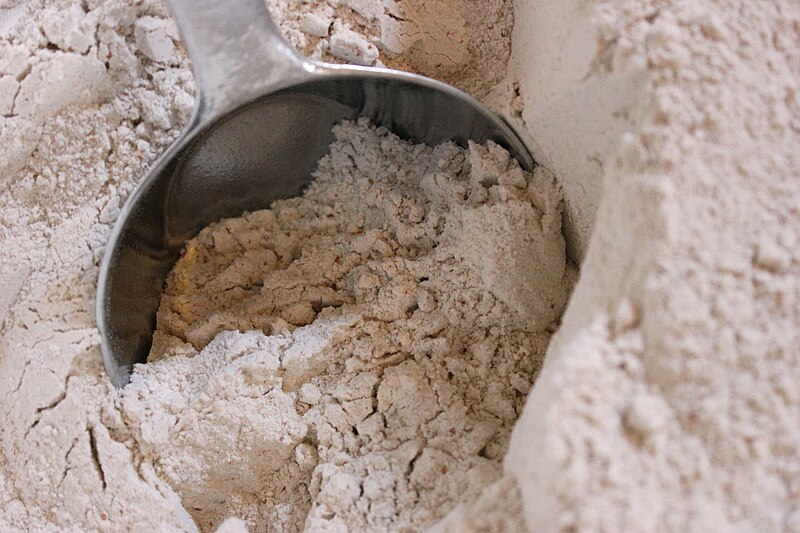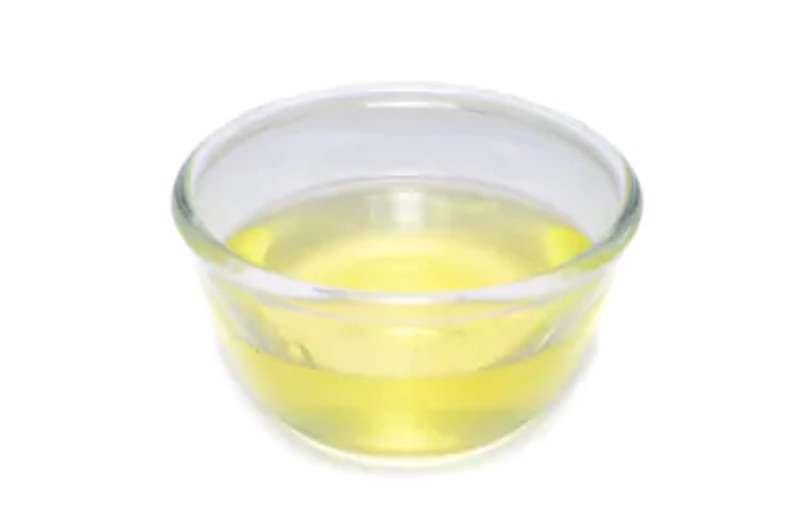Whole Wheat Flour vs. Egg White
Nutrition comparison of Whole Wheat Flour and Egg White
Ever wonder how your favorite foods stack up against each other in terms of nutrition?
We compared the nutritional contents of
whole wheat flour
versus
egg white
(100g each)
below using 2020 USDA and NIH data[1].
For a quick recap of significant nutrients and differences in whole wheat flour and egg white:
- Both whole wheat flour and egg white are high in protein.
- Whole wheat flour has more thiamin, niacin, pantothenic acid, Vitamin B6 and folate, however, egg white contains more riboflavin and Vitamin B12.
- Whole wheat flour is an excellent source of dietary fiber, iron and potassium.
USDA sources for nutritional information: Whole Wheat Flour (Wheat flour, whole-grain, soft wheat) and Egg White (Egg, white, raw, fresh) . Have a correction or suggestions? Shoot us an email.
Calories and Carbs
calories
Whole wheat flour is high in calories and egg white has 84% less calories than whole wheat flour - whole wheat flour has 332 calories per 100 grams and egg white has 52 calories.
For macronutrient ratios, whole wheat flour is much lighter in protein, much heavier in carbs and similar to egg white for fat. Whole wheat flour has a macronutrient ratio of 11:84:5 and for egg white, 91:6:4 for protein, carbohydrates and fat from calories.
Macro Ratios from Calories:
| Whole Wheat Flour | Egg White | |
|---|---|---|
| Protein | 11% | 91% |
| Carbohydrates | 84% | 6% |
| Fat | 5% | 4% |
| Alcohol | ~ | ~ |
carbohydrates
Whole wheat flour is high in carbohydrates and egg white has 99% less carbohydrates than whole wheat flour - whole wheat flour has 74.5g of total carbs per 100 grams and egg white has 0.73g of carbohydrates.
dietary fiber
Whole wheat flour is an excellent source of dietary fiber and it has more dietary fiber than egg white - whole wheat flour has 13.1g of dietary fiber per 100 grams and egg white does not contain significant amounts.
sugar
Whole wheat flour and egg white contain similar amounts of sugar - whole wheat flour has 1g of sugar per 100 grams and egg white has 0.71g of sugar.
Protein
protein
Both whole wheat flour and egg white are high in protein. Whole wheat flour is very similar to whole wheat flour for protein - whole wheat flour has 9.6g of protein per 100 grams and egg white has 10.9g of protein.
Fat
saturated fat
Both whole wheat flour and egg white are low in saturated fat - whole wheat flour has 0.43g of saturated fat per 100 grams and egg white does not contain significant amounts.
Vitamins
Vitamin A
Whole wheat flour and egg white contain similar amounts of Vitamin A - whole wheat flour has 2.7ug of Vitamin A per 100 grams and egg white does not contain significant amounts.
Vitamin E
Whole wheat flour has more Vitamin E than egg white - whole wheat flour has 0.53mg of Vitamin E per 100 grams and egg white does not contain significant amounts.
Vitamin K
Whole wheat flour and egg white contain similar amounts of Vitamin K - whole wheat flour has 1.9ug of Vitamin K per 100 grams and egg white does not contain significant amounts.
The B Vitamins
Whole wheat flour has more thiamin, niacin, pantothenic acid, Vitamin B6 and folate, however, egg white contains more riboflavin and Vitamin B12.
| Whole Wheat Flour | Egg White | |
|---|---|---|
| Thiamin | 0.297 MG | 0.004 MG |
| Riboflavin | 0.188 MG | 0.439 MG |
| Niacin | 5.347 MG | 0.105 MG |
| Pantothenic acid | 1.011 MG | 0.19 MG |
| Vitamin B6 | 0.191 MG | 0.005 MG |
| Folate | 28 UG | 4 UG |
| Vitamin B12 | ~ | 0.09 UG |
Minerals
calcium
Whole wheat flour has 371% more calcium than egg white - whole wheat flour has 33mg of calcium per 100 grams and egg white has 7mg of calcium.
iron
Whole wheat flour is an excellent source of iron and it has 45 times more iron than egg white - whole wheat flour has 3.7mg of iron per 100 grams and egg white has 0.08mg of iron.
potassium
Whole wheat flour is an excellent source of potassium and it has 142% more potassium than egg white - whole wheat flour has 394mg of potassium per 100 grams and egg white has 163mg of potassium.
Customize your serving size
The comparison below is by weight, but sometimes 100g isn't that intuitive of a measurement for food. View a custom portion comparison (e.g. cups, oz, package).
You can try adding or subtracting the amount of either Whole Wheat Flour or Egg White .
Note: The specific food items compared are: Whole Wheat Flour (Wheat flour, whole-grain, soft wheat) and Egg White (Egg, white, raw, fresh) .
Whole Wheat Flour g
()
|
Daily Values (%) |
Egg White g
()
|
|||||
|---|---|---|---|---|---|---|---|
| KCAL % |
|
5% | calories | 5% |
|
KCAL % | |
| G % |
|
5% | carbohydrates | 5% |
|
G % | |
| G % |
|
5% | dietary fiber | 5% |
|
G % | |
| G | 5% | sugar | 5% | G | |||
| G % |
|
5% | total fat | 5% |
|
G % | |
| G % |
|
5% | saturated fat | 5% |
|
G % | |
| G | 5% | monounsaturated fat | 5% | G | |||
| G | 5% | polyunsaturated fat | 5% | G | |||
| G | 5% | trans fat | 5% | G | |||
| MG | 5% | cholesterol | 5% | MG | |||
| MG % |
|
5% | sodium | 5% |
|
MG % | |
| 5% | Vitamins and Minerals | 5% | |||||
| UG % |
|
5% | Vitamin A | 5% |
|
UG % | |
| MG % |
|
5% | Vitamin C | 5% |
|
MG % | |
| IU % |
|
5% | Vitamin D | 5% |
|
IU % | |
| MG % |
|
5% | calcium | 5% |
|
MG % | |
| MG % |
|
5% | iron | 5% |
|
MG % | |
| MG % |
|
5% | magnesium | 5% |
|
MG % | |
| MG % |
|
5% | potassium | 5% |
|
MG % | |
| MG % |
|
5% | thiamin (Vit B1) | 5% |
|
MG % | |
| MG % |
|
5% | riboflavin (Vit B2) | 5% |
|
MG % | |
| MG % |
|
5% | niacin (Vit B3) | 5% |
|
MG % | |
| MG % |
|
5% | Vitamin B6 | 5% |
|
MG % | |
| MG % |
|
5% | pantothenic acid (Vit B5) | 5% |
|
MG % | |
| UG % |
|
5% | folate (Vit B9) | 5% |
|
UG % | |
| UG % |
|
5% | Vitamin B12 | 5% |
|
UG % | |
| MG % |
|
5% | Vitamin E | 5% |
|
MG % | |
| UG % |
|
5% | Vitamin K | 5% |
|
UG % | |
| G % |
|
5% | protein | 5% |
|
G % | |
| UG % |
|
5% | biotin (Vit B7) | 5% |
|
UG % | |
| MG % |
|
5% | choline | 5% |
|
MG % | |
| MG % |
|
5% | chlorine | 5% |
|
MG % | |
| UG % |
|
5% | chromium | 5% |
|
UG % | |
| MG % |
|
5% | copper | 5% |
|
MG % | |
| UG % |
|
5% | fluoride | 5% |
|
UG % | |
| UG % |
|
5% | iodine | 5% |
|
UG % | |
| MG % |
|
5% | manganese | 5% |
|
MG % | |
| UG % |
|
5% | molybdenum | 5% |
|
UG % | |
| MG % |
|
5% | phosphorus | 5% |
|
MG % | |
| UG % |
|
5% | selenium | 5% |
|
UG % | |
| MG % |
|
5% | zinc | 5% |
|
MG % | |
| G | 5% | Water | 5% | G | |||
| G | 5% | Starch | 5% | G | |||
| G | 5% | Alcohol | 5% | G | |||
FAQ
Does whole wheat flour or egg white contain more calories in 100 grams?Whole wheat flour is high in calories and egg white has 80% less calories than whole wheat flour - whole wheat flour has 332 calories in 100g and egg white has 52 calories.
Is whole wheat flour or egg white better for protein?
Both whole wheat flour and egg white are high in protein. Whole wheat flour is very similar to whole wheat flour for protein - whole wheat flour has 9.6g of protein per 100 grams and egg white has 10.9g of protein.
Does whole wheat flour or egg white have more carbohydrates?
By weight, whole wheat flour is high in carbohydrates and egg white has 100% fewer carbohydrates than whole wheat flour - whole wheat flour has 74.5g of carbs for 100g and egg white has 0.73g of carbohydrates.
Does whole wheat flour or egg white contain more iron?
Whole wheat flour is an abundant source of iron and it has 45 times more iron than egg white - whole wheat flour has 3.7mg of iron in 100 grams and egg white has 0.08mg of iron.
Does whole wheat flour or egg white contain more potassium?
Whole wheat flour is a rich source of potassium and it has 140% more potassium than egg white - whole wheat flour has 394mg of potassium in 100 grams and egg white has 163mg of potassium.

